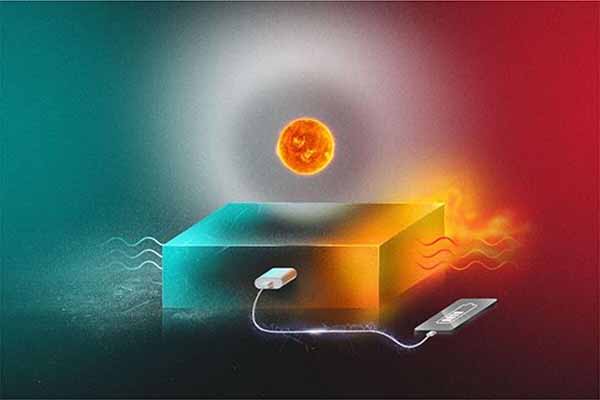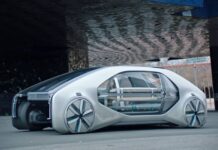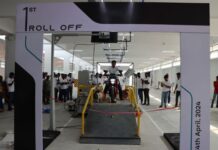The number of electric vehicles is growing together with a deeper awareness about the importance of sustainability. With climate change covering the headlines of news worldwide, power generation through renewable energy represents more than just a secondary option.
Renewables and electric vehicles tendentially support the gradual detachment from fossil-based or fuel-based energy generation and transportation methods. However, each is subject to a list of challenges that affect its reliable performance. From the insufficient number of EV charging stations to the inconsistent energy supply of solar energy, engineers are faced with several obstacles in their electrical projects. In many cases, the power capacity of EV charging stations is not enough to meet the growing energy demand and even to accommodate simultaneous charging.
Integrated solar energy storage and charging systems are growing in popularity as they allow for a more stable and efficient energy supply even at night or under adverse weather conditions. These systems also decrease the costs associated with EV charging by guaranteeing the safe storage of energy for peak demand uses.
Below we will review some of the challenges these integrated solar energy and EV charging systems can help address and the technology used to put this mechanism into practice.
The Challenges of Renewables, EV Charging, and Energy Storage
A solar energy storage and EV charging integrated system balances the disadvantages often connected to each component, namely renewable energy generation equipment, EV charging stations, and energy storage systems.
Some of the main challenges associated with each part of this complex integrated system can be named as follows:
- Increased costs: Solar energy grids and panels entail high installation and maintenance costs that often limit even partially the spread of such equipment. Renewable energy operators often lack substantial government subsidies and other forms of financial support.
- Unstable or harsh environmental conditions: Renewable energy equipment and outdoor EV charging stations are often subject to adverse weather conditions. In coastal and humid areas, EV charging and renewable energy equipment need to be adequately protected against the possible effects of moisture and corrosion. The same equipment also needs to resist even the greatest temperature changes both during the day and across all seasons. Unreliable environmental conditions can also result in potential safety threats or damage to the equipment.
- Inconsistent power generation: Due to the intrinsic characteristics of solar power, it is not always possible to guarantee a constant power supply, especially during the winter months, on cloudy days, or at night. Energy storage ensures a more consistent power generation while also functioning as a remedy against the price volatility often associated with the energy consumption during different times of the day and week.
Battery energy storage systems represent a flexible, effective way of storing large amounts of renewable energy, which can be used for continuous and multi-car EV charging. The benefits of such integration are evident for both EV charging stations owners and end consumers. EV charging stations require power converters that are capable of charging electric vehicles in a short period of time. These fast charging applications require power converters that can cater to different power levels and enable fast charging.
The Technology Behind Solar Energy Storage & Charging Integrated Systems
Solar energy storage and EV charging integrated systems clearly support a more efficient usage of renewable energy. EV charging stations can be powered by photovoltaic systems in residential and community environments. In both applications, the overall mechanism of these integrated systems remain similar to each other, with slight differences in the exact components.
In a home micro-grid, solar energy is first gathered through rooftop photovoltaic systems and stored in a home energy storage system (ESS). Solar energy is then used to power home appliances and for a home-based EV charging station. With an integrated system, homeowners can charge their electric vehicles at night and eventually sell the unused energy for extra profits.
A solar storage and EV charging system can also be employed on a larger scale to power community-based EV charging stations. Solar energy is first collected through a centralized PV power station and stored in a commercial ESS. The stored energy can guarantee a continuous power supply on a more macro level.
While each component is crucial, a reliable power generation is possible mostly thanks to a BESS. Storing energy might look like a relatively simple task, but in fact, can result in serious threats if a BESS is not installed or operated properly. Therefore, to ensure that the battery in a BESS is working properly, it is necessary to rely on a specialized battery management system (BMS). This BMS management system is used for the real-time monitoring of the current battery status to prevent and act immediately in the case of anomalies or malfunctioning. Power supplies are also used to sustain the continuous operation of the BMS management system and prevent any equipment damage or safety threats.
BESSs are particularly effective in solving one of the major challenges associated with solar power – its unreliability. Another aspect on which BESSs can provide valuable support is simultaneous charging of multiple EVs. BESSs help reduce the impact of simultaneous charging on the power grid by alleviating its power supply pressure. Without such system, the charging of EVs can rely only on the actual power available in the power grid.
EV charging stations often experience wide ups and downs in energy demand throughout the day. During peak hours, multiple EVs might be charged at the same time, thus increasing the energy demand for the solar energy system and the EV charging station. In other words, when there are many cars to charge, the EV charging station needs a lot of electricity to charge more than EV. Without the help of a BESS, the only source of power supply is the actual power grid, regardless of how challenging it might be to supply power at a given time. To meet the challenging demand of simultaneous EV charging, power grid owners might have to expand the capacity of their power grid, resulting in more space-consuming installations and in higher costs.
With the help of a BESS, it’s possible to store energy when not all charging spaces are occupied and use it at a later time or during more convenient energy consumption periods. It’s also possible to expand the capacity of the power grid, allowing the simultaneous charging of several cars while also easing the pressure on the power grid itself. This way, power grid owners are spared the need to expand the capacity of their power grid, and can instead meet the EV owners’ demand with a much less significant impact on their budget and on the environment.
Engineers looking to design electrical circuits for these integrated systems should select reliable power supplies from the same experienced manufacturer. This way, it is possible to minimize the issue with circuit compatibility. For example, MORNSUN can provide a wide arrange of power supplies specifically designed for applications in solar power equipment, BESS, and EV charging stations.
MORNSUN’s Power Supply Solutions
MORNSUN has over 23 years of experience in the power supply industry. Its power supplies have already powered hundreds of projects worldwide across a wide range of industries. Its engineering team has designed a series of power converters for specific uses in solar energy storage and EV charging integrated systems. Notably, MORNSUN’s power supply solutions for household energy storage systems include a series isolated AC/DC converters, wide input voltage isolated DC/DC converters, and fixed input voltage DC/DC converters. MORNSUN’s collection of power supplies is not limited to the ones just mentioned, and a more comprehensive list can be found in the Products Page. MORNSUN’s technical team of engineers and researchers is available at any time to provide further support for discussing the design requirements of solar power, BESS, and EV charging electrical equipment.
Contact MORNSUN to request more information, support, or a sample of their reliable power supply solutions for renewable energy storage and EV charging integrated systems.
For more information, please visit www.mornsun-power.com


















